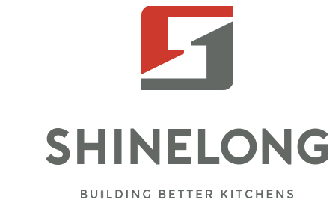News
Sustainable Practices in Kitchen Equipment Manufacturing and Design
Induction Cooking: Revolutionizing Sustainable Kitchens
Benefits of Induction Technology in Professional Kitchens
Professional kitchens are seeing a big shift thanks to induction cooking tech. These cooktops heat up super fast and cut down energy use by around half compared to old school gas or electric ranges. The money saved on electricity bills alone makes it worth considering for any kitchen looking to go green. Safety is another plus since induction surfaces only get hot where the pan sits, so there's less chance of burns or fires during those hectic service hours. Plus, kitchens stay cooler overall because these cooktops don't radiate heat everywhere, meaning air conditioning doesn't have to work as hard all day long. For chefs, the real game changer comes in temperature control. They can set precise temps without constant monitoring, which means fewer burnt batches and better tasting meals. Many experienced cooks swear by this level of control when preparing delicate sauces or searing steaks just right every time.
Case Study: Chatham Universityâs Energy-Saving Success
Chatham University brought induction cooking tech into their campus dining halls as part of their green initiatives and teaching programs. The results? A solid 30% cutback on energy consumption which really speaks volumes about what this kind of tech can do for the environment. Beyond just saving power, these changes helped slash greenhouse gases too, something that fits right in with the school's long standing dedication to being good stewards of our planet. Kitchen staff actually reported faster cooking times across the board plus smoother day to day operations in general. When it comes to schools wanting to go green, Chatham's experiment shows real promise. What started as kitchen equipment upgrade might just be pointing the way toward bigger picture solutions for education facilities everywhere looking to shrink their carbon footprint while still running efficient food service operations.
- Chatham University's Sustainability Initiative: Chatham University's adoption of induction cooking reflects its dedication to sustainability and aligns with educational purposes.
- Success Metrics: Achieved a 30% reduction in energy consumption while decreasing greenhouse gas emissions, showcasing a successful application of induction technology.
- Operational Improvements: Significant enhancements in cooking efficiency and reduced kitchen temperatures have been noted by chefs and staff at Chatham, illustrating operational benefits.
Energy-Efficient Warewashing Systems for Eco-Friendly Operations
Water Conservation in Commercial Dishwashers
Commercial dishwashers today are becoming essential tools for businesses trying to cut down on water waste. Many models now come equipped with smart tech that cuts water use by around 30% each time they run, meaning restaurants and cafes aren't draining as much from local water supplies. Some establishments have started installing water recycling systems alongside their dishwashers, letting them reuse rinse water multiple times before disposal. This simple addition can save restaurant owners literally thousands of gallons every year. Restaurants switching to Energy Star certified machines get double benefits too water savings plus lower electricity bills. For kitchen managers concerned about their environmental footprint, these upgrades represent real progress toward greener operations without sacrificing efficiency.
Automation and Smart Warewashing Innovations
Bringing IoT tech into warewashing systems marks a big change for how restaurants run their kitchens while being better for the environment. Smart sensors built right into these systems let managers watch water and energy consumption as it happens, which means they can tweak settings to save money on utilities. Take load detection for example – when the sensors figure out how many dishes need washing, they'll adjust the cycle length automatically rather than running full cycles all day long. Restaurant owners report seeing real differences too. Some places cut down staff hours because the machines handle more work themselves without sacrificing cleanliness standards. As more kitchens adopt this kind of automation, we're starting to see a new normal where saving resources goes hand in hand with running efficient food service operations.
Sustainable Manufacturing Processes in Kitchen Equipment
Reducing Waste Through Lean Manufacturing
Applying lean manufacturing concepts has completely changed how kitchen equipment gets made, mainly because it cuts down on waste and makes better use of resources. Companies that switched to these methods saw their manufacturing costs drop around 20% in some cases, marking real progress toward greener production practices. When factories focus on reducing material waste during production runs, they help protect the environment while running operations more efficiently at the same time. Looking at actual case studies from the industry shows significant reductions in production lead times after implementing lean approaches. Customer satisfaction scores tend to go up too, giving businesses a distinct edge over competitors who haven't embraced these changes yet.
Recycled Materials and Circular Design Principles
Using recycled materials when making kitchen equipment helps cut down on the carbon emissions from producing brand new items. The concept of circular design takes this even further by making sure kitchen appliances last longer and can be fixed or broken down for reuse at the end of their life. According to industry reports, businesses that adopt these green practices tend to see better environmental outcomes and attract customers who care about planet friendly options. We're seeing more and more demand in the marketplace for cooking equipment made with sustainability in mind. This growing interest is pushing manufacturers to rethink how they design and produce their products, as staying ahead of the curve on eco concerns becomes increasingly important for competitive advantage.
Designing for Energy Efficiency and Longevity
Smart HVAC Integration and Heat Recovery Systems
Smart HVAC systems have become a game changer for commercial kitchens looking to save money while keeping things comfortable. Restaurants report cutting their energy bills anywhere from 20% to 25% after installing these systems, which makes a big difference when running costs are already so high. Heat recovery units take this even further by grabbing all that wasted heat from cooking equipment and putting it back to work elsewhere in the kitchen. This doesn't just save on utility bills either it actually improves how clean the air feels inside. Take a look at any modern restaurant chain and they'll likely be using some form of these technologies. Beyond just saving cash, many local authorities now require these systems as part of building codes, and getting LEED certification basically demands them if businesses want those green building credentials.
LEED Certification and Sustainable Kitchen Design Standards
Getting LEED certified shows a business cares about sustainability, something that matters to many customers who want their money going toward environmentally friendly operations. The LEED guidelines focus on making kitchens more energy efficient, saving water, and using materials that won't harm the planet over time. These changes actually cut down on running costs for restaurant owners in the long run. Restaurants with LEED certification often see their bottom line improve while at the same time drawing in patrons looking for greener dining options. Real world examples show how these kitchens perform better financially year after year compared to traditional setups. When restaurants make sustainability part of their kitchen design, they save money now and help support broader efforts to protect our environment for future generations.
FAQs
What are the main benefits of induction cooking in professional kitchens? Induction cooking offers rapid heating, energy savings, enhanced safety, precision temperature control, and lower kitchen temperatures, which are beneficial in professional kitchen settings.
How does Chatham University benefit from using induction cooking technology? Chatham University achieved a 30% reduction in energy usage and reduced greenhouse gas emissions, showcasing the positive environmental impact of induction cooking technology.
How do modern commercial dishwashers contribute to water conservation? Modern commercial dishwashers leverage advanced technologies to reduce water usage by up to 30% per cycle and allow for water reuse, aiding in water conservation efforts.
What role does lean manufacturing play in sustainable kitchen equipment production? Lean manufacturing minimizes waste and optimizes resources, reducing manufacturing costs and enhancing operational efficiency in kitchen equipment production.
Why is LEED certification important for sustainable kitchen designs? LEED certification highlights a commitment to sustainability, benefiting businesses by lowering operational costs and attracting eco-conscious customers.
 After-Sales:
After-Sales:
 EN
EN
 AR
AR
 HR
HR
 NL
NL
 FI
FI
 FR
FR
 DE
DE
 EL
EL
 HI
HI
 IT
IT
 PT
PT
 RO
RO
 RU
RU
 ES
ES
 TL
TL
 ID
ID
 SL
SL
 VI
VI
 ET
ET
 MT
MT
 TH
TH
 FA
FA
 AF
AF
 MS
MS
 IS
IS
 MK
MK
 HY
HY
 AZ
AZ
 KA
KA
 UR
UR
 BN
BN
 BS
BS
 KM
KM
 LO
LO
 LA
LA
 MN
MN
 NE
NE
 MY
MY
 UZ
UZ
 KU
KU









